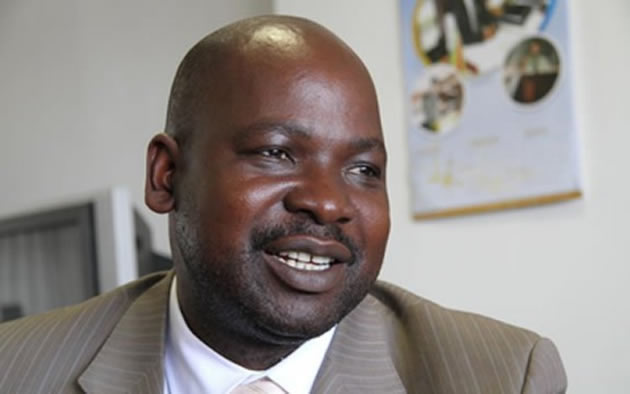Tomana lays out NPA parameters

Herald Reporter
Prosecutor-General Mr Johannes Tomana has set the parameters within which the National Prosecuting Authority will deal with criminal cases that come before it, in fulfilment of the requirements of the new Constitution.
In terms of Section 260(2) of the Constitution, the Prosecutor General is required to formulate and publicly disclose the general principles by which he or she decides to institute and conduct criminal proceedings.
Mr Tomana said in a notice published in the Government Gazette on Friday that the NPA did not undertake its duties on partisan lines and its officers were not allowed to be active members or office holders of political parties.
ALSO SEE
He said the NPA and its members executed their mandate as enshrined in the Constitution without fear, favour or bias. “In the broadest terms, I Johannes Tomana, the first Prosecutor-General of the Republic of Zimbabwe, affirm that the decision on whether and how to institute and conduct criminal proceedings shall be guided by the effective Constitution, statutes, case law and standard operating procedures that are within the body of Zimbabwe’s criminal law,” said Mr Tomana.
NPA would also act in accordance with the Criminal Procedure and Evidence Act (Chapter 9:07), Supreme Court Act (Chapter 7:10), the rules of the courts, the Prosecutors handbook and precedents that are already effective and in use as of the date of gazetting of the general notice.
Mr Tomana said the general principles were not intended to replace the current legislative framework, but to give a broad outline of the rationale and processes behind the making of decisions by the NPA.
“On my behalf and on behalf of all public prosecutors I undertake, in the exercise of our functions, not to act in a partisan manner and further interests of any political party, or cause, or violate the fundamental rights of any person,” he said.
“I accept that I and all public prosecutors shall not be active members or office bearers of any political party or organisation.” The State could stop prosecution before conviction if the accused would have pleaded guilty to any charge or he or she shall be entitled to a verdict of acquittal in respect of that charge.
Said Mr Tomana: “In cases where NPA declines to prosecute any accused person for any alleged offence, any private party who can show some substantial and peculiar interest in the issue of the trial arising out of some injury which he or she has individually suffered by the commission of the offence, may apply to the Prosecutor-General for permission to undertake a private prosecution, in any court competent to try the offence the person is alleged to have committed.”
Mr Tomana said factors considered on whether or not to institute criminal proceedings included reasonable suspicion, reasonable evidence and public interest.
He said factors to consider when evaluating evidence were: how strong is the case for the State? Is the evidence admissible? Are the State witnesses credible? Is the evidence reliable? Is the evidence available? and how strong is the case for the defence?
Mr Tomana said the NPA would only prosecute when there was reasonable suspicion or grounds that a crime was committed. He said reasonable evidence admissible could be any species of proof that could be presented during trial.
In cases where a crime would have been committed and no docket was forwarded to the police, the Prosecutor-General could direct the Police Commissioner General to investigate the matter.
Prosecution shall in all instances be commenced upon receipt of a police docket or any other competent institution which can lawfully investigate and compile a docket such as the Anti-Corruption Commission.
Mr Tomana said the NPA will endeavour to be fair and just at all times, upholding the constitutional rights of all people who are presented for prosecution.








Comments